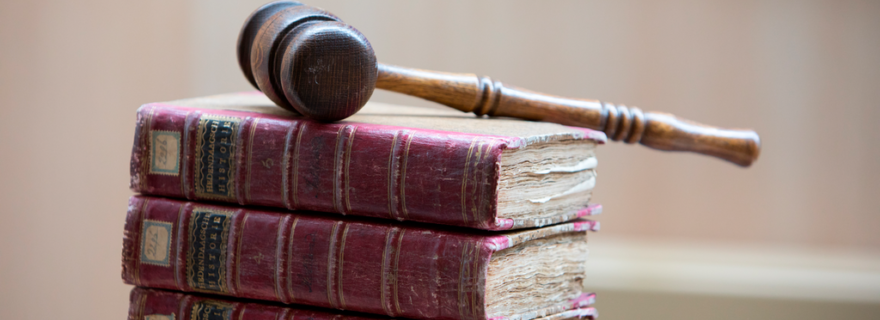Could online dispute resolution help in the Thomas Cook bankruptcy?
Online Dispute Resolution and Blockchain technology: how does ODR work? What is a smart contract? Could ODR be helpful in settling numerous potential and related legal proceedings of a relatively simple nature? And how? Endless possibilities…
Online Dispute Resolution and Blockchain technology were discussed recently by lawyers from all over the world at the 2019 International Bar Association Annual Meeting in Seoul. Foremost conclusion: ODR and Smart Contracts are unstoppable ongoing advances, extremely interesting but also something to be studied critically. Two themes in particular captured the attention of global law practitioners: the decision-making process itself and the enforcement of rulings. ODR can in fact work really well, in particular for more broader related matters such as unsatisfied Thomas Cook customers in the bankruptcy. Let’s see how.
The 2019 IBA Annual Meeting was held in the last week of September in Seoul, South Korea. One of the discussion topics was: ‘Blockchain for the Legal Profession and Dispute Resolution’. As is the case with all new technology, it is first invented, and then the applications arrive. Implementation, in the words of Ernest Hemingway, takes place ‘gradually, then suddenly’[1].
Much has been said in regard to the technology used: blockchain. For now, we can establish that it was invented approximately 25 years ago, and it provides us with a dynamic and distributed ‘ledger’; everyone admitted to the blockchain can view it and it is constantly being updated and synchronised. All entries are cryptographically protected, verified and irreversible. Such permanent and public (for all connected to the blockchain) entries ensure that fraudulent actions are virtually impossible; it is unfalsifiable - ‘set in digital stone’.
Please do not confuse this technology with an application such as ‘bitcoin’. This is just one example. Other applications are self-executing contractual arrangements, referred to as: ‘smart contracts’. Mind you, there is nothing ‘smart’ about ‘smart contracts’. They are referred to as such because they are self-executing. They are coded agreements or arrangements which execute their content autonomously in accordance with the embedded terms. As such, there is also nothing new to this: for instance vendor machines are also based on a smart contract, a self-executing purchase agreement: a customer wants to buy a chocolate bar, inserts a coin, the machine verifies the correct amount, after which it self-executes: i.e. drops the bar into the hatch. Intermediaries are no longer necessary.
What’s new in regard to smart contracts is that their use is extended by applying blockchain technology, thus creating larger and more complicated self-executing cross-border contractual arrangements. Smart contracts can be built on a blockchain protocol, for instance ‘Ethereum’. It enables ‘trustless’ contractual relationships. Yet, being a contract, disputes can still arise. Mechanisms of ODR may – and should – therefore be included. As for example the ODR tool of “eBay’s Resolution Center” (see: https://resolutioncenter.ebay.com/) shows, this can be quite successful (over 60 million e-commerce disputes are dealt with annually). This ODR ‘works’ since the enforcement works, as the purchase price is secured through PayPal for a few days, and all users agree upfront to this form of ODR in the eBay user conditions.
Such an ODR tool might also be very useful in ‘closed’ situations such as large bankruptcies: through the use of blockchain technology, the receivers in the bankruptcy might come up with a relatively simple solution and use ODR to resolve straightforward disputes with customers through an online arbitration process. Many disputes could be dealt with this way in a relatively short period of time, which could also be useful in easing emotions. Enforcement could be guaranteed through an escrow account of the receivers or a third-party guarantee, such as the ‘Stichting Garantiefonds Reisgelden’ in the Netherlands which guarantees certain elements of purchased travel arrangements. As the outcome of disputes can be shown on the Blockchain, that as such could create ‘jurisprudence’ which might limit upcoming proceedings and could be helpful in future settlements.
Please note that many questions remain in relation to ODR, for example regarding conflicts with local mandatory (bankruptcy) laws, how to preserve fundamental rights to a fair trial, how to deal with more complex matters or with complex legal issues such as ‘good faith’. In short: how is the fairness of the decision controlled? This is something that could be figured out though. In the end, it’s all not so different from the ancient Greek law courts (4th and 5th centuries BC), in which large numbers of jurors decided on a case put before them. The new ODR platform ‘Kleros’ (see: https://kleros.io/) operates this way, with many randomly chosen jurors deciding on a case, within a certain timeframe. And it is conceivable that other ODR, more specific, solutions can be created as well, which basically provides endless possibilities; for instance for matters such as damages suffered by numerous homeowners in Groningen due to gas drilling in the past. Just imagine how helpful this could be. Up next: how to answer the fundamental ODR questions raised above, in particular how to preserve fundamental rights to a fair trial.
[1] Ernest Hemingway, ‘Fiesta The sun also Rises’, 1st printing 1949 (first published 1927) by Pan Books.



0 Comments
Add a comment